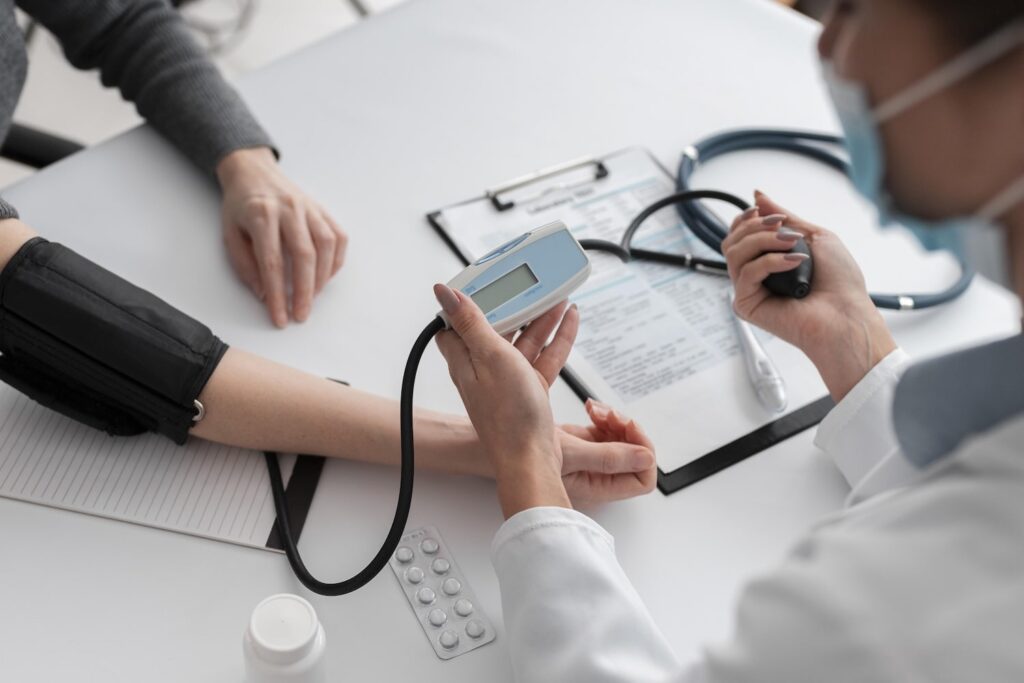Preparing for a health screening is a crucial step in managing your overall health. Whether you’re undergoing tests for diabetes, thyroid function, osteoporosis, or PCOS, understanding what to expect and how to get ready can make the process smoother and more effective.
Health screenings provide vital insights into your condition, allowing for early detection and timely intervention. This guide will walk you through essential steps, from who should be screened to how to prepare and why these screenings are important for your long-term well-being.
Who Should Consider Health Screenings
Health screenings are essential for individuals at risk or those already diagnosed with chronic conditions like diabetes, thyroid disorders, osteoporosis, and PCOS. If you have a family history of these conditions, experience related symptoms, or belong to a high-risk group, regular screenings should be a priority.
For instance, women over 50 are more prone to osteoporosis, while those with a family history of diabetes or PCOS may need earlier and more frequent tests. By identifying who should undergo these tests, you can ensure timely screenings and appropriate medical interventions.
What Are Screening Tests
Screening tests detect health issues early, often before symptoms appear.
These tests prevent complications and guide treatment plans.

Diabetes Screening
- Fasting Blood Glucose Test measures blood sugar levels after fasting for at least 8 hours, helping to detect diabetes or prediabetes.
- HbA1c Test provides an overview of blood sugar control over the past 2-3 months, offering insight into long-term glucose management.

Thyroid Screening
- Thyroid Function Tests measure levels of thyroid hormones such as TSH, T3, and T4. These tests help detect thyroid imbalances that may affect metabolism and overall health.

Osteoporosis Screening
- Bone Density Scan (DEXA) assesses bone density, identifying the risk of fractures and osteoporosis early on. Osteoporosis Screening

PCOS Screening
- Hormone Panels are blood tests to evaluate hormone levels associated with PCOS.
- Ultrasound assess the ovaries for cysts and other abnormalities.
- Glucose Tolerance Test determines how your body processes sugar, essential for detecting insulin resistance linked to PCOS.
Why Are Health Screenings Important
Health screenings play a vital role in early detection and prevention. Regular screenings can help identify issues before symptoms arise, leading to more effective treatment and better outcomes.
- Diabetes Screenings: These tests can prevent complications like heart disease and kidney failure by catching high blood sugar levels early.
- Thyroid Screenings: By detecting imbalances in thyroid hormones, these tests can help manage metabolism and energy levels, preventing long-term complications.
- Osteoporosis Screenings: Focus on preventing fractures by catching bone density issues early, thus avoiding severe bone-related issues.
- PCOS Screenings: Early detection through hormone panels, ultrasounds and glucose tolerance tests can help manage symptoms and reduce the risk of associated conditions such as infertility, obesity and cardiovascular diseases.
Preparing For a Health Screening: What You Need to Know
Proper preparation is key to obtaining accurate results during your health screening.
Here are some tailored health check-up tips for each screening type:
Diabetes Test Preparation

Fasting: For fasting blood glucose or HbA1c tests, refrain from eating or drinking

Medication: If you’re on diabetes medication, consult our doctor on whether you should take it before the test.

Hydration: Drink water to stay hydrated, as it can help make the blood draw easier.
Thyroid Test Preparation

Medication: Avoid taking your thyroid medication on the morning of the test, unless advised otherwise by our specialist. This helps ensure that the test accurately reflects your hormone levels without interference from the medication.

Diet: Some foods, such as soy products, may interfere with thyroid function tests, so it’s best to avoid them the day before your test.

Supplements: Refrain from taking iodine supplements or other vitamins that might affect thyroid hormone levels before your test.
Osteoporosis Screening Preparation

Clothing: Wear loose, comfortable clothing without any metal (such as zippers or underwire bras) to make the bone density scan more convenient.

Supplements: Avoid taking calcium supplements for at least 24 hours before your bone density test to prevent interference with the results.

No Special Fasting: No fasting or special diet is required for osteoporosis screening, so you can eat and drink as usual.
PCOS Screening Preparation

Timing: Schedule your hormone tests for the early phase of your menstrual cycle (usually days 2-5) for the most accurate results.

Medication: Discuss with our doctor whether you should continue taking birth control pills or other hormonal medications before the test, as they can affect the results.

Diet and Exercise: While there’s no specific diet preparation for PCOS screening, maintaining a balanced diet and avoiding heavy exercise just before the test can provide more stable results.
When To Schedule Your Screening
Timing is critical when it comes to health screenings. Regular screenings should be based on your age, risk factors and existing health conditions.
- Diabetes: Annual tests are recommended for those at risk or with a history of high blood sugar levels.
- Thyroid: Thyroid test should occur every 1-2 years, especially for those with symptoms or a history of thyroid disorders.
- Osteoporosis: Screenings typically begin after age 50, but earlier tests may be necessary for those with risk factors like menopause or family history.
- PCOS: Women with symptoms of PCOS, such as irregular periods, should undergo screening, which may include hormone panels and ultrasound, as recommended by their doctor. Early and regular testing helps in managing symptoms and preventing complications like infertility or metabolic syndrome.
Scheduling your screenings at the right intervals ensures that potential issues are caught early and managed effectively.
For personalised advice on health screening and to ensure you’re on the right track with your tests, consider scheduling a consultation with our specialist, Dr Cho Li Wei.
With over two decades of experience in endocrinology, Dr Cho provides comprehensive guidance tailored to your needs, preferences and conditions.

About Dr Cho Li Wei
- Experienced accredited consultant endocrinologist with over 20 years in clinical practice, specialising in endocrine disorders such as diabetes, thyroid conditions and osteoporosis.
- Qualifications include MB ChB from the University of Glasgow, FRCP (London), MD (UK), MPH from the University of Hong Kong, and FAMS in Endocrinology.
- Strong focus on reproductive endocrinology, including the management of polycystic ovary syndrome, and boasts a significant research background with over 600 citations.
- Committed to providing personalised and comprehensive care for endocrine and bone health.
Conclusion
Health screenings are vital for addressing osteoporosis, thyroid disorders, diabetes and PCOS. Regular diabetes tests prevent serious complications by monitoring blood sugar levels. Thyroid screenings detect hormonal imbalances early, which is crucial for maintaining energy and metabolism. Osteoporosis screenings are key for identifying bone density loss before it leads to fractures. Lastly, PCOS screenings are necessary for managing symptoms and preventing associated health issues such as infertility.
At LW Cho Endocrine Clinic, we focus on early intervention and tailored care strategies. Our commitment to detailed screenings, lifestyle enhancements and personalised treatment plans ensures you stay ahead of potential health issues.
Booking an Appointment at Cho Endocrine Clinic
Booking an appointment at LW Cho Endocrine Clinic is straightforward. You can schedule a consultation through various methods:
- WhatsApp: Send a text message to the clinic’s WhatsApp number +65 8040 7605 for quick and convenient booking.
- Call: Contact the clinic directly at +65 6244 6177 to speak with a representative and schedule your visit.
We have two convenient locations at Parkway East Hospital and Gleneagles Napier Singapore for accessible endocrinological care right at your doorstep.






